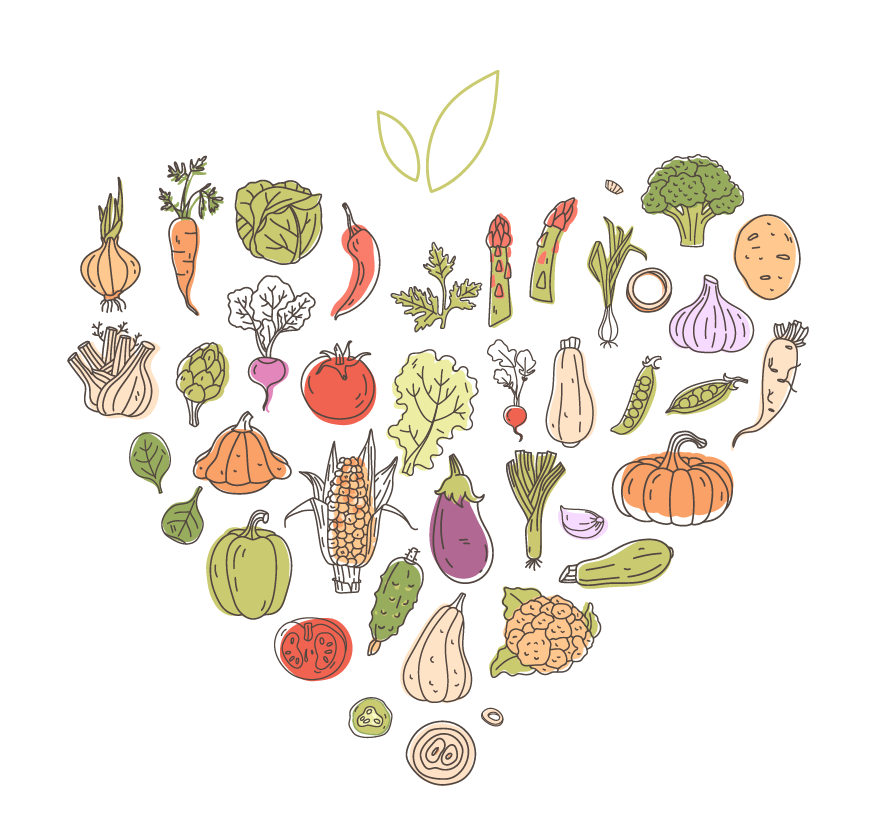
by Elizabeth L. Hall, Ph.D., RDN, LDN
February is American Heart Month, making it the perfect time to learn about ways to love your heart. Unfortunately, heart disease still tops the list as the leading cause of death in the U.S. However, many of the risk factors for heart disease can be modified by lifestyle, specifically by improving nutritional health. Research shows that eating patterns that are high in fruits and vegetables, for instance, can help to lower blood pressure and lower risk of heart disease and stroke.
Despite these health benefits, only 7% of U.S. adults consume adequate servings of fruits and vegetables each day. For this reason, additional research and resources should focus on supporting individuals to improve eating patterns by consuming more fruits and vegetables to promote health and reduce risk of heart disease.
Antioxidants, the bioactive component of plants, play a prominent role in these beneficial effects. There are many types of antioxidants. Most of us are familiar with vitamins C and E and their roles as antioxidants in the body, but others include bioflavonoids found in apples, berries, tea and coffee; carotenoids like beta-carotene found in carrots; and terpenoids found in cauliflower, onions, garlic and whole grains.
Research has shown an association between antioxidant intake and reduced cardiometabolic risk. To explore this relationship, Sophie Balentine, a second year graduate student in the applied dietetics practice program, conducted an IRB-approved research study, which I advised along with Dr. Lisa Ritchie, on the association between antioxidant intake and cardiometabolic health among University faculty and staff. While there was no statistically significant effect found between the primary variables in the study, survey results revealed that 22% (N=7) of the sample were identified as being at cardiometabolic risk. In addition, participants consumed an average of three servings of fruits and vegetables each day which is below most evidence-based recommendations for fruit and vegetable intake in order to provide adequate antioxidants. While more research is needed, key takeaways are that fruit and vegetable intake can be used as a proxy for antioxidant intake, and most of us are falling short of recommendations.
Changing eating patterns may seem daunting, but setting small actionable goals for behavior change is a manageable place to start and can have an immense impact on health.
In addition to physical activity and stress management, tips for better heart health include eating well-balanced meals and snacks that include a wide variety of foods and food groups. At least two cups of fruit and three cups of vegetables should be consumed daily, but more servings would be more beneficial. All forms of fruits and vegetables count including fresh, frozen, dried, canned and juiced. We tend to think fresh is best, but cooking some fruits and vegetables actually increases their antioxidant content (e.g., tomatoes). Pulses like legumes, beans and lentils as well as whole grains provide antioxidant benefits, so including more of these foods is also advantageous. Other nutrient recommendations for heart health include eating less added salt, added sugar and saturated/trans fat as well as eating fatty fish, high in omega-3 fatty acids, at least twice per week.
Lastly, it may be tempting to grab a supplement to help meet your needs, but it is best to focus on foods first. The synergistic effect of consuming nutrients in food produces more bioavailability for potentially beneficial effects.
Happy Heart Month! As you spread the love, remember to also show a little love to your body’s hardest working muscle — your heart!
Dr. Elizabeth L. Hall is program director and assistant professor for the applied dietetics practice graduate program. She and her colleagues are registered dietitians nutritionists who are happy to help with any questions related to heart health. Contact them at fcs@harding.edu or visit harding.edu/arts-sciences/family-consumer/graduate-programs to learn more about the applied dietetics program.